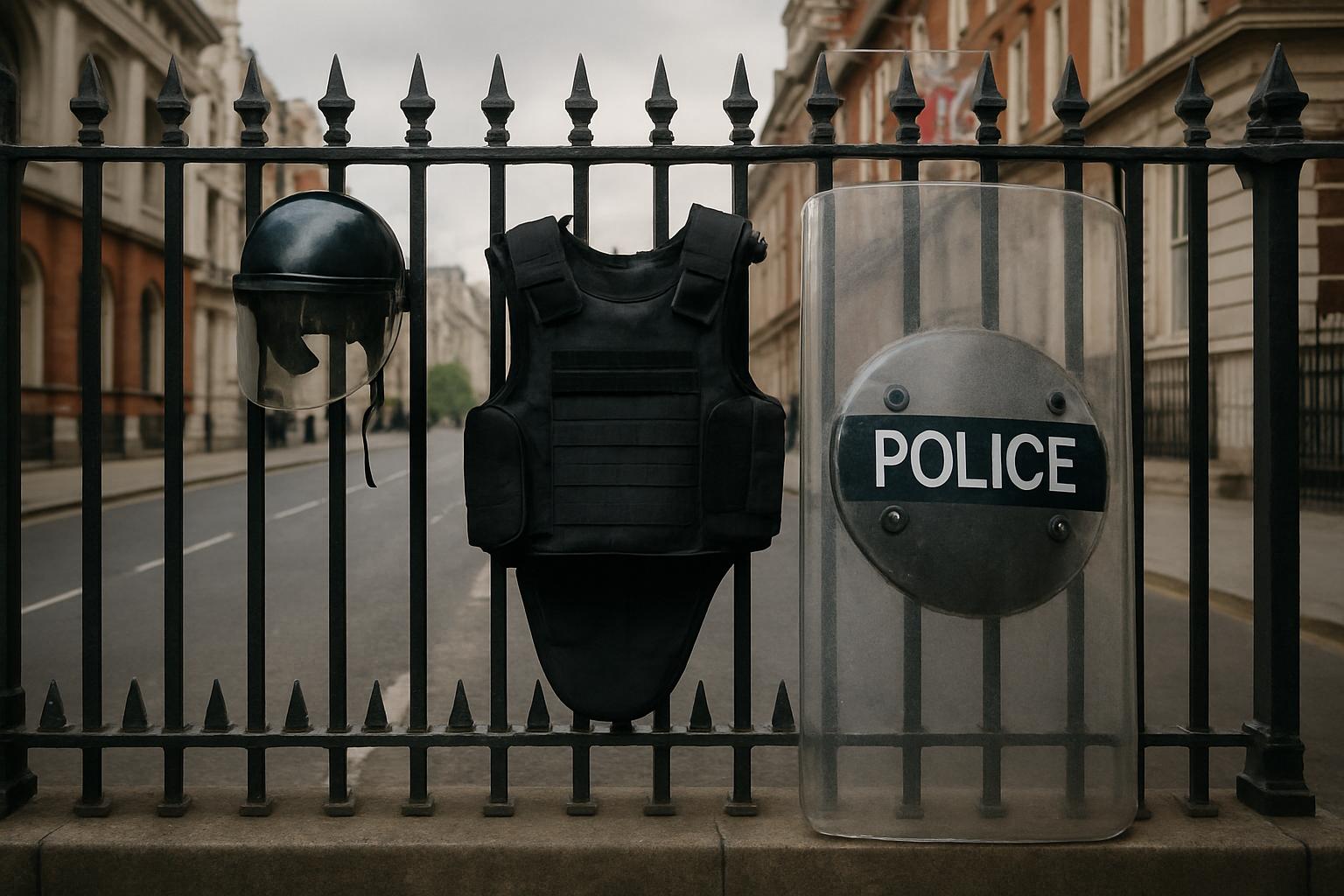Thousands are expected to descend on London this weekend for a highly charged series of protests centred around the rally organised by far-right activist Tommy Robinson, born Stephen Yaxley-Lennon. The ‘Unite the Kingdom’ march will gather at Stamford Street near Waterloo Bridge at 11am before making its way towards the southern end of Whitehall, while a significant counter-protest, the March Against Fascism, is being organised by Stand Up To Racism (SUTR), forming up by midday in Russell Square and proceeding to the northern end of Whitehall.
The Metropolitan Police are preparing for a large-scale deployment of around 1,600 officers, including 500 brought in from other forces, to manage the expected crowds and minimise the risk of clashes between groups holding diametrically opposed views. Public order policing commander Clair Haynes has emphasised the extensive measures being put in place, including barriers to create a sizeable sterile zone separating the two factions along Whitehall. Pedestrian access is being restricted in the area between Trafalgar Square and Parliament Square, with the public advised to use alternative routes due to the potential for disorder.
Concerns have been raised particularly within London’s Muslim communities, given Robinson’s history of anti-Muslim rhetoric and incidents of offensive chanting by some participants at past marches. The police have urged Muslim Londoners not to alter their plans or avoid the city, assuring that officers will be present to safeguard the right to travel safely around London. Haynes stated that the police would take a firm stance on behaviour crossing into hate crime or discrimination, underscoring a commitment to policing “without fear or favour” in what will be a complex and active day for the capital.
Robinson has publicly called on his supporters to come peacefully, discouraging masks, alcohol, and violent behaviour, describing the event as the UK’s biggest free speech festival. The rally is expected to feature speakers such as Canadian psychologist Jordan Peterson and media personality Katie Hopkins, figures known for their controversial right-leaning views. Meanwhile, SUTR’s counter-protest will be notably led by hundreds of women, including independent MP Diane Abbott, aiming to send a "united message against the far right threat."
The day’s policing efforts are complicated by the presence of several Premier League football matches across London, including high-profile derbies such as West Ham versus Tottenham and Brentford against Chelsea. The Metropolitan Police Federation chairwoman Paula Dodds has highlighted the physical and emotional toll on officers regularly deployed to manage large protests, noting the strain caused by cancelled leave and extended shifts. She warned that the continued high demand on police resources is unsustainable, given the increased risk officers face while maintaining public order.
The event is notable not only for its scale but for the broader societal tensions it reflects, with Robinson being a polarising figure linked to far-right activism and previous convictions, including an 18-month prison sentence for breaching a court injunction. The police's strategy seeks to balance protecting lawful protest while preventing the sort of disorder and violence that such confrontations can provoke.
On the day of the rallies, several arrests have already been reported, including incidents involving flares and assaults on officers, indicating the volatile nature of the gatherings despite police efforts to maintain calm. The atmosphere remains charged with flags, chants, and a strong police presence in public order gear, signaling the significant challenge for law enforcement to prevent conflict and uphold safety for all Londoners and visitors amidst these opposing demonstrations.
📌 Reference Map:
- Paragraph 1 – [1], [2], [6]
- Paragraph 2 – [1], [2], [5], [6]
- Paragraph 3 – [1], [5]
- Paragraph 4 – [1], [5], [6]
- Paragraph 5 – [1], [3], [5]
- Paragraph 6 – [1], [7]
- Paragraph 7 – [1], [3], [4], [7]
Source: Noah Wire Services
